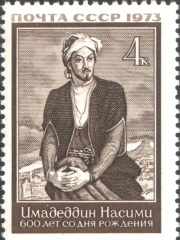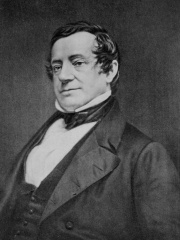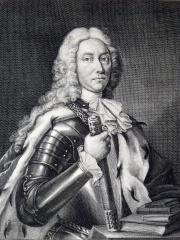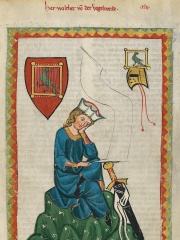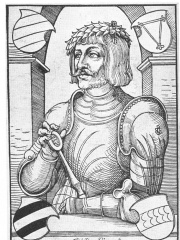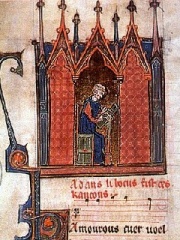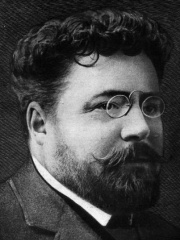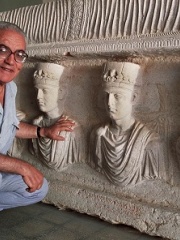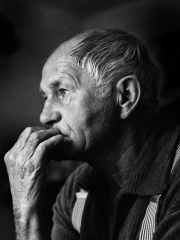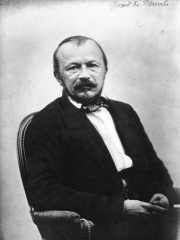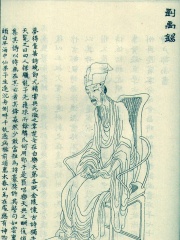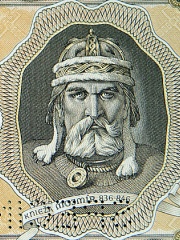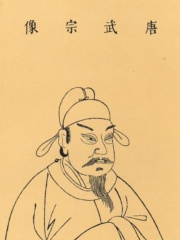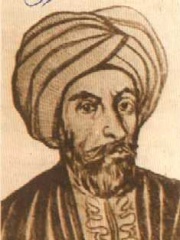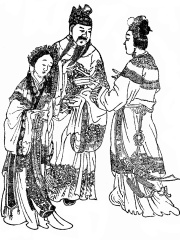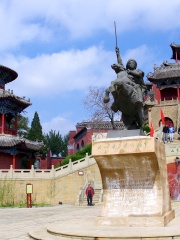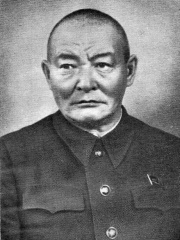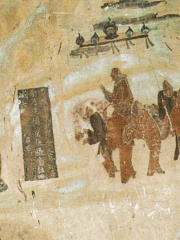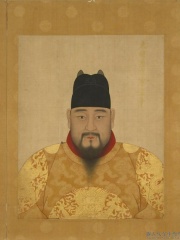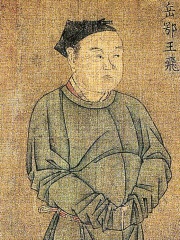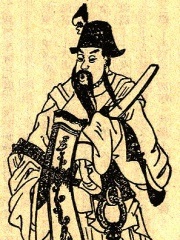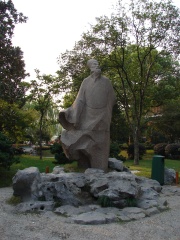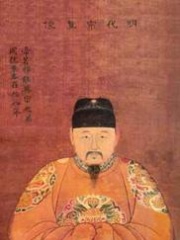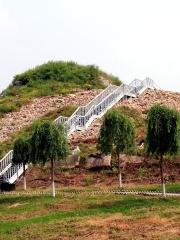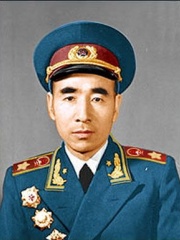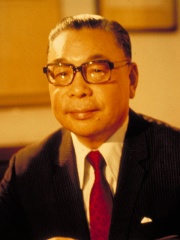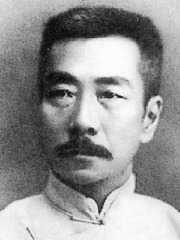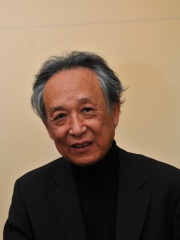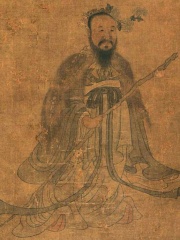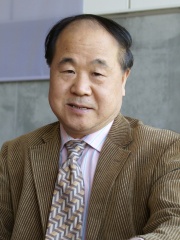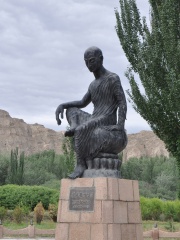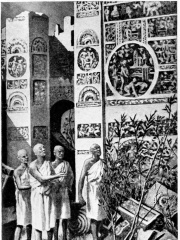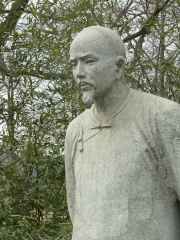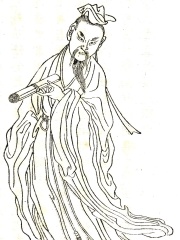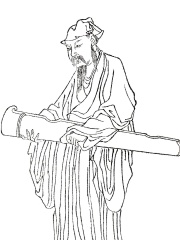WRITER
Bai Juyi
772 - 846
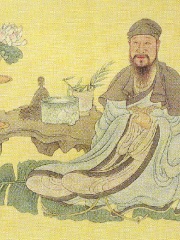
 Bai Juyi
Bai Juyi
Bai Juyi (also Bo Juyi or Po Chü-i; Chinese: 白居易, Mandarin pinyin Bǎi Jūyì; 772–846), courtesy name Letian (樂天), was a Chinese musician, poet, and politician during the Tang dynasty. Many of his poems concern his career or observations made about everyday life, including as governor of three different provinces. He achieved fame as a writer of verse in a low-key, near vernacular style that was popular throughout medieval East Asia. Bai was also influential in the historical development of Japanese literature, where he is better known by the on'yomi reading of his courtesy name, Haku Rakuten (shinjitai: 白楽天). Read more on Wikipedia
His biography is available in 45 different languages on Wikipedia (up from 44 in 2024). Bai Juyi is the 583rd most popular writer (down from 540th in 2024), the 123rd most popular biography from China (up from 134th in 2019) and the 9th most popular Chinese Writer.
Bai Juyi is most famous for his poetry. He was a poet and statesman during the Tang Dynasty.
Memorability Metrics
Page views of Bai Juyi by language
Among WRITERS
Among writers, Bai Juyi ranks 583 out of 7,302. Before him are Imadaddin Nasimi, Washington Irving, Dimitrie Cantemir, Walther von der Vogelweide, John Donne, and Ulrich von Hutten. After him are Adam de la Halle, Gaston Leroux, Patrick Süskind, Khaled al-Asaad, Bohumil Hrabal, and Gérard de Nerval.
Most Popular Writers in Wikipedia
Go to all RankingsImadaddin Nasimi
1369 - 1417
HPI: 71.86
Rank: 577
Washington Irving
1783 - 1859
HPI: 71.85
Rank: 578
Dimitrie Cantemir
1673 - 1723
HPI: 71.85
Rank: 579
Walther von der Vogelweide
1170 - 1230
HPI: 71.85
Rank: 580
John Donne
1572 - 1631
HPI: 71.83
Rank: 581
Ulrich von Hutten
1488 - 1523
HPI: 71.81
Rank: 582
Bai Juyi
772 - 846
HPI: 71.81
Rank: 583
Adam de la Halle
1245 - 1288
HPI: 71.80
Rank: 584
Gaston Leroux
1868 - 1927
HPI: 71.79
Rank: 585
Patrick Süskind
1949 - Present
HPI: 71.79
Rank: 586
Khaled al-Asaad
1932 - 2015
HPI: 71.78
Rank: 587
Bohumil Hrabal
1914 - 1997
HPI: 71.76
Rank: 588
Gérard de Nerval
1808 - 1855
HPI: 71.74
Rank: 589
Contemporaries
Among people born in 772, Bai Juyi ranks 1. After him are Charles the Younger, Wala of Corbie, and Liu Yuxi. Among people deceased in 846, Bai Juyi ranks 1. After him are Mojmir I of Moravia, Emperor Wuzong of Tang, and Abu Tammam.
Others Born in 772
Go to all RankingsBai Juyi
WRITER
772 - 846
HPI: 71.81
Rank: 1
Charles the Younger
POLITICIAN
772 - 811
HPI: 66.52
Rank: 2
Wala of Corbie
POLITICIAN
772 - 836
HPI: 60.68
Rank: 3
Liu Yuxi
PHILOSOPHER
772 - 842
HPI: 60.50
Rank: 4
Others Deceased in 846
Go to all RankingsBai Juyi
WRITER
772 - 846
HPI: 71.81
Rank: 1
Mojmir I of Moravia
POLITICIAN
795 - 846
HPI: 68.02
Rank: 2
Emperor Wuzong of Tang
POLITICIAN
814 - 846
HPI: 66.39
Rank: 3
Abu Tammam
WRITER
788 - 846
HPI: 66.21
Rank: 4
In China
Among people born in China, Bai Juyi ranks 123 out of 1,610. Before him are Emperor Xian of Han (181), Li Zicheng (1606), Khorloogiin Choibalsan (1895), Zhang Qian (-200), Emperor Yingzong of Ming (1427), and Yue Fei (1142). After him are Yuan Shao (154), Su Shi (1037), Jingtai Emperor (1428), Gwanggaeto the Great (374), Lin Biao (1907), and Chiang Ching-kuo (1910).
Others born in China
Go to all RankingsEmperor Xian of Han
POLITICIAN
181 - 234
HPI: 72.15
Rank: 117
Li Zicheng
POLITICIAN
1606 - 1645
HPI: 72.12
Rank: 118
Khorloogiin Choibalsan
POLITICIAN
1895 - 1952
HPI: 71.97
Rank: 119
Zhang Qian
EXPLORER
200 BC - 114 BC
HPI: 71.94
Rank: 120
Emperor Yingzong of Ming
POLITICIAN
1427 - 1464
HPI: 71.85
Rank: 121
Yue Fei
MILITARY PERSONNEL
1142 - 1142
HPI: 71.84
Rank: 122
Bai Juyi
WRITER
772 - 846
HPI: 71.81
Rank: 123
Yuan Shao
POLITICIAN
154 - 202
HPI: 71.75
Rank: 124
Su Shi
WRITER
1037 - 1101
HPI: 71.71
Rank: 125
Jingtai Emperor
POLITICIAN
1428 - 1457
HPI: 71.69
Rank: 126
Gwanggaeto the Great
POLITICIAN
374 - 413
HPI: 71.69
Rank: 127
Lin Biao
POLITICIAN
1907 - 1971
HPI: 71.62
Rank: 128
Chiang Ching-kuo
POLITICIAN
1910 - 1988
HPI: 71.59
Rank: 129
Among WRITERS In China
Among writers born in China, Bai Juyi ranks 9. Before him are Lu Xun (1881), Gao Xingjian (1940), Wu Cheng'en (1500), Qu Yuan (-343), Mo Yan (1955), and Luo Guanzhong (1330). After him are Su Shi (1037), Kumārajīva (343), Faxian (340), Cao Xueqin (1724), Ban Gu (32), and Tao Yuanming (365).
Lu Xun
1881 - 1936
HPI: 77.56
Rank: 3
Gao Xingjian
1940 - Present
HPI: 76.23
Rank: 4
Wu Cheng'en
1500 - 1582
HPI: 73.86
Rank: 5
Qu Yuan
343 BC - 278 BC
HPI: 73.42
Rank: 6
Mo Yan
1955 - Present
HPI: 73.16
Rank: 7
Luo Guanzhong
1330 - 1400
HPI: 72.31
Rank: 8
Bai Juyi
772 - 846
HPI: 71.81
Rank: 9
Su Shi
1037 - 1101
HPI: 71.71
Rank: 10
Kumārajīva
343 - 413
HPI: 71.30
Rank: 11
Faxian
340 - 418
HPI: 70.81
Rank: 12
Cao Xueqin
1724 - 1763
HPI: 70.07
Rank: 13
Ban Gu
32 - 92
HPI: 69.92
Rank: 14
Tao Yuanming
365 - 427
HPI: 69.63
Rank: 15
